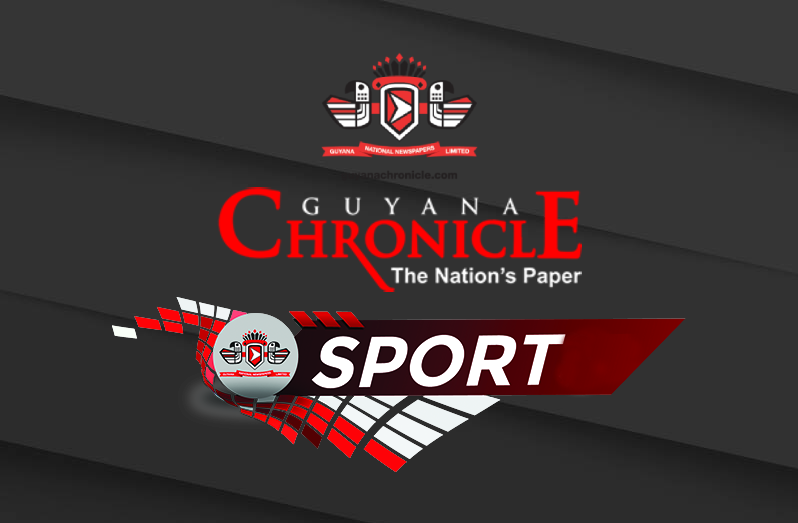A TOTAL of 14 individuals, including current youth national coaches and former footballers, have successfully completed a rigorous theoretical and practical training programme, and are now proud holders of Concacaf W ‘C’ Licence and Concacaf ‘C’ Licence certificates.
At a simple ceremony, which was held on October 13 at the Guyana Football Federation (GFF)’s Georgetown headquarters, First Vice-President Brigadier (ret.) Bruce Lovell awarded Concacaf W ‘C’ Licence certificates to Amanda Angoy, Chevon Mochoir, Donette Bassoo, Jenel Walker, Jenell Browne, Rhesa Pompey, and Sheron Abrams.
Lady Jags Assistant Coach Akilah Castello, Colin Nelson, Under-15 Boys’ National Team Coach Devnon Winter, Lennox Adams, Levi Braithwaite, GFF Coaches Education Officer Lyndon France, and Under-20 Men’s National Team Coach Wayne Dover now proudly hold Concacaf ‘C’ Licences.
The two courses were conducted in succession by the Guyana Football Federation’s Education Department, which continues to focus on efforts to grow home-grown coaching talent, including women, to develop the game nationally.
The internationally-recognised training programmes provided coaches with the skills and knowledge to design and deliver effective coaching sessions for a wider range of players and scenarios, especially for youth football development through the GFF’s nationwide network of Academy Training Centres (ATCs).
Brigadier (ret.) Lovell congratulated the group, and noted that human resource development is at the centre of the Federation’s strategic plan to professionalise football all across Guyana.
“We are indeed thankful and grateful that you participated, and you applied yourselves with diligence and commitment to successfully complete the courses. The success of football rests on a tripod: There are the players, the referees, and you the coaches; if one leg of that tripod is weak, the tripod cannot provide the base to support football success. As coaches, you have the important task of molding the knowledge, skill and attitudes of our youths; it’s a responsibility you need to take seriously, and seek to continuously hone your skills,” he said.
In 2022, Concacaf recognised that there is a need for women coaches, and invested significant time and resources into developing women’s football through tailored coaching programmes.
Technical Director Mr. Bryan Joseph, while delivering his remarks, indicated that the newly-accredited Concacaf W ‘C’ Licence coaches will now be assigned to various Academy Training Centres for a period of internship under the more experienced coaches already working in the Academies. “Our ladies need time to improve their competencies as coaches; what better opportunity to achieve this than by coaching consistently with the ATCs!” he declared.
During the internship, the GFF Coach Educators will be monitoring the development of the coaches. Further, the coaches’ involvement at the ATCs will boost the opportunities for more female-specific participation at the Academies.
“With the inclusion of the coaches on the staff, we will be encouraging them to have female-specific sessions for young girls at a grassroots level,” Joseph said. The female coaches, he said, will eventually become full-time members of staff on a monthly stipend, similar to the current ATC coaches.
Guyana is the fifth country in the Concacaf region to conduct the ‘C’ Level coaching training, which aims to provide over 300 women across the region with the opportunity to coach at various levels.
GFF Coach Linsworth Gilbert, who facilitated the training programmes along with Technical Director Bryan Joseph, said he was pleased with the level of engagement and commitment demonstrated by the participants throughout the training sessions.
Unfortunately, 12 participants did not meet the necessary criteria, and were unable to receive their certificates, while six individuals are in similar positions for the Concacaf ‘C’ Licence training.
“Even though coaches may not receive a certificate today, they still have an opportunity to develop and achieve the qualification by continuing to coach, and being able to apply themselves, based on the requirements of the Concacaf pillars of development, which are leadership, management, teaching, coaching, planning and preparing. So, the Coach Educators will continue to manage and monitor those coaches in their various environments to allow them to come back and do
the various aspects of the programme that are necessary to continue to develop,” Linsworth explained.
Levi Braithwaite, who is now a Concacaf ‘C’- licensed coach, pointed out that the course was “a bit challenging at first; it was kind of wavering at some stages in the theoretical part of the programme, with so many assignments to do in such a short time, nevertheless I did manage.”
He added that “The practical part of it was a normal thing with me, ‘cause I’m constantly coaching at the Academy at my club, so it came naturally. In a nutshell, it was all good.”
Chevon Mochoir, a Concacaf W ‘C’ Licence holder, said that she now has an enhanced understanding of coaching that will enable her “to look at how I should basically coach a line of players, and to add to the team’s development holistically”.
GFF President Wayne Forde and his Council remain dedicated to the professionalisation of the game through comprehensive training programmes aimed at enhancing the skills and knowledge of players and officials.


.jpg)











